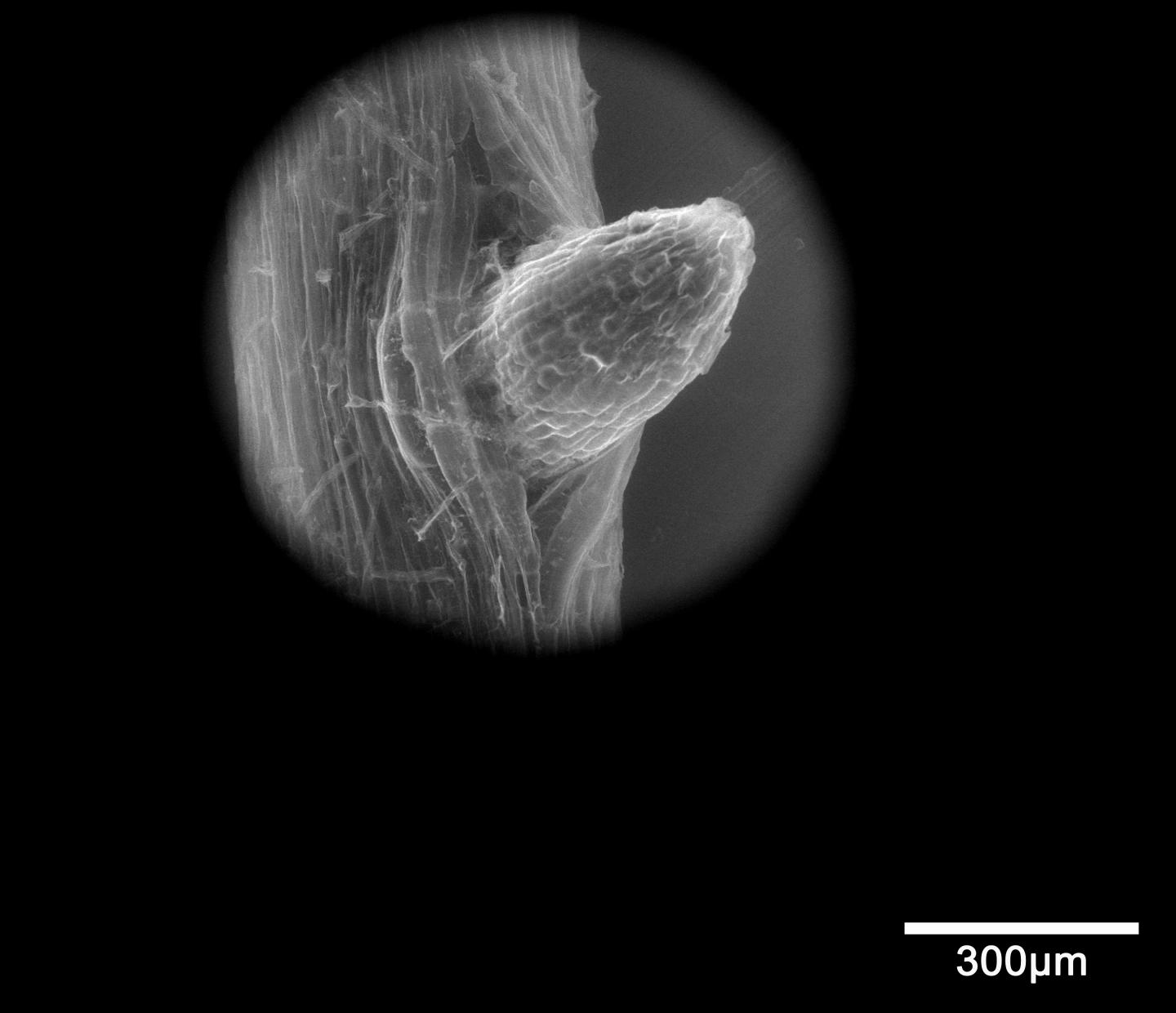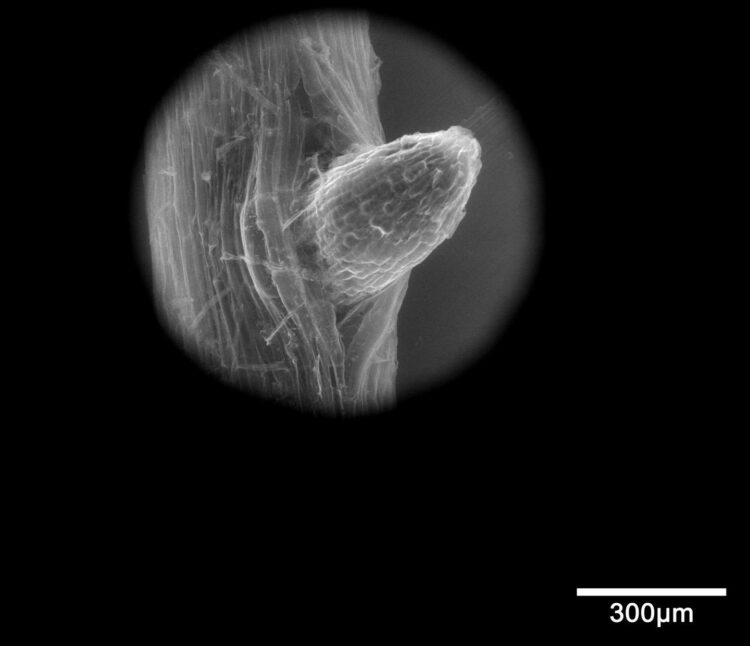
Credit: YIC
Microplastics (MPs), i.e., tiny plastic particles less than 5 millimeters in length, can now be found throughout the ocean and other aquatic ecosystems, and even in our seafood and salt. As MPs have become ubiquitous, scientists have become concerned about the transfer of MPs from the environment to the food chain and the potential impact of MPs on human health.
Scientists from the Chinese Academy of Sciences (CAS) recently found that microplastics are indeed contaminating edible plants, including vegetables we eat. The study was published in Nature Sustainability on July 13.
The study was led by LUO Yongming, a professor both at the Yantai Institute of Coastal Zone Research (YIC) and the Nanjing Institute of Soil Science of CAS.
Most MPs are emitted to the terrestrial environment and accumulate in large amounts in soil. In addition, secondary particles are formed by the degradation of plastics. Wastewater, an important source of water for agricultural irrigation, also contains small-sized MPs.
Despite the prevalence of MPs throughout the environment, the matter of MP uptake by crop plants has not received much attention.
For decades, scientists believed that plastic particles were simply too large to pass through the physical barriers of intact plant tissue. But this new study disproves this assumption.
“Cracks at the emerging sites of new lateral roots of lettuce and wheat crops can take in MPs from the surrounding soil and water. Those MPs can then be transferred from the roots up to the edible parts of the crop,” said Prof. LUO.
Scientists already knew that particles as tiny as 50 nanometers in size could penetrate plant roots. But Prof. LUO’s group revealed that particles about 40 times that size can get into plants as well.
The MPs identified in this study were spherical plastic particles up to 2 micrometers in size with a small degree of mechanical flexibility. These features allowed the MPs to squeeze into the small apoplastic space of plant root cells.
“Another mechanism is that at the lateral root emergence sites there are small cracks, and then the particles go through those cracks and enter the xylem vessels. Thus it is even possible that particles larger than the ones we studied might also be taken up by plants,” said Dr. LI Lianzhen, first author of the study.
These findings shed new light on the possibility of food chain transfer of MPs. If MPs are getting into our crop plants, they are also getting into our meat and dairy. This raises obvious concerns about growing crops on fields contaminated with wastewater treatment discharge or sewage sludge, a process that could introduce MPs into the food chain. It also raises the key question of how MPs affect human health, a question for which there is as yet no clear answer.
Aside from the possible health impact, MPs in crops is also undesirable from the standpoint of agricultural sustainability.
###
This work was supported by the National Nature Science Foundation of China and the Key Research Program of Frontier Sciences, CAS.
Media Contact
LUO Yongming
[email protected]
Related Journal Article
http://dx.





